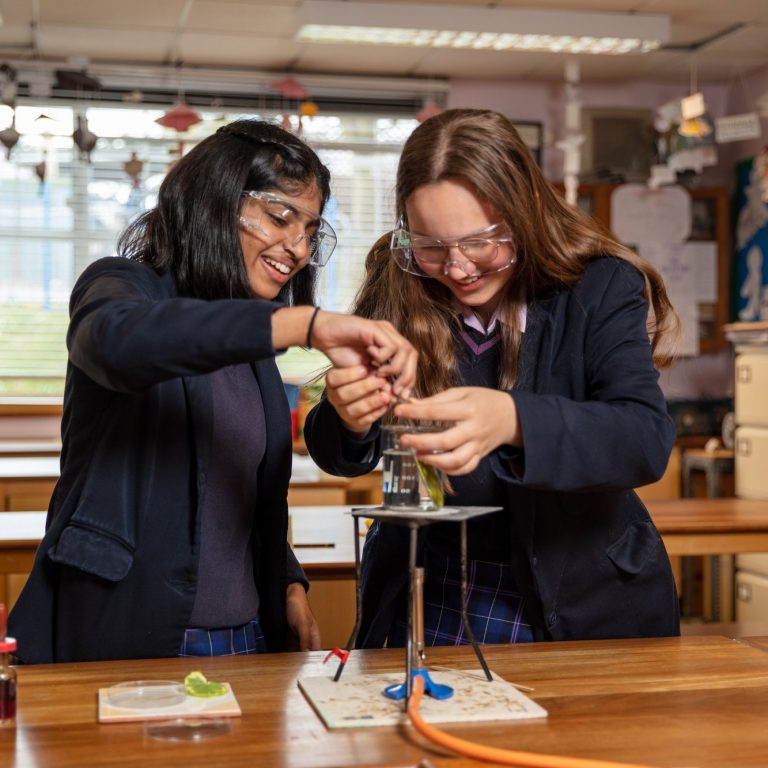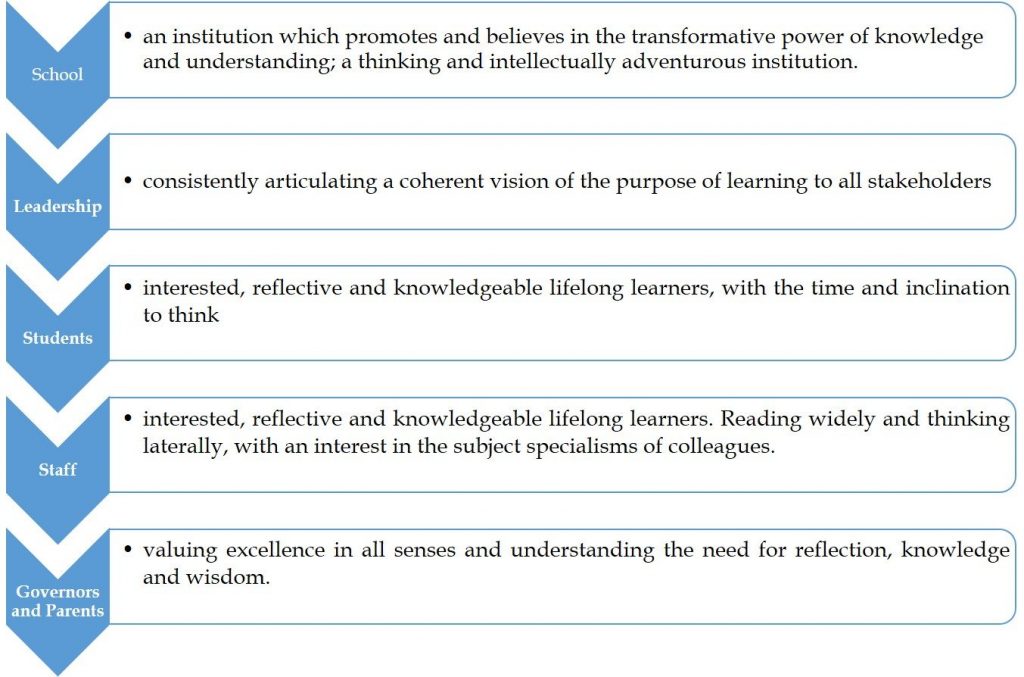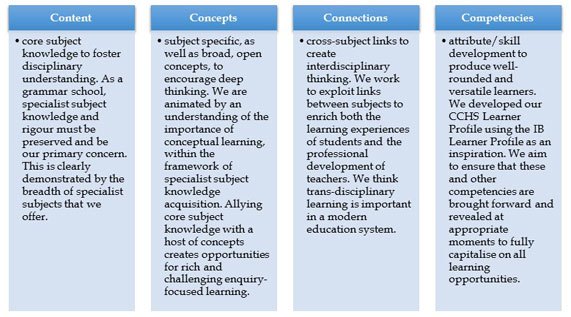CCHS offers a broad, balanced and ambitious curriculum tailored to meet the needs of our highly able students. As a dynamic and forward-thinking school we review and update our curriculum on a regular basis.
We have adopted a progressive academic curriculum, which satisfies the needs of our highly able students. An important aspect of this concerns our CCHS Learner Profile, which highlights the kind of attributes we want our students to develop throughout their 7 years at our School. We inspire them and give then opportunities to become articulate, creative, enquiring, knowledgeable, principled, reflective and resilient.
Vision & Aims
The vital concept which animates the CCHS curriculum is ambition. This is clearly communicated through our School vision – developing the leaders of tomorrow – and our School aims: the pursuit of excellence; fulfilling individual potential; and contributing to the local and global community.
Challenge
To realise our vision and aims requires institutionalised curriculum challenge, i.e. demanding and stimulating experiences across the School. Our challenge model has seven elements:
- Scheduled: habitual challenge, e.g. daily lesson activities
- Extension: amplified challenge, e.g. Curriculum Support Booklet activities
- Enrichment: deep challenge, e.g. Enrichment Day activities
- Overarching: cohesive challenge, e.g. Internationalism activities
- Excellence: examination challenge, e.g. GCSE, and A Levels
- Ancillary: complementary challenge, e.g. extra-curricular activities
- Innovation: novel challenge, e.g. special projects
Learner Profile
Our teachers devised the CCHS Learner Profile, which provides us with the language and ideas to envisage learning in its broadest sense:
- Articulate: polished communicator
- Creative: novel thinker
- Enquiring: sharp questioner
- Knowledgeable: information seeker
- Principled: conscientious learner
- Reflective: agile learner
- Resilient: courageous character
Scholarly School
We are a scholarly school: we endorse the wisdom of René Descartes’ words:
“It is not enough to have a good mind; the main thing is to use it well.”





